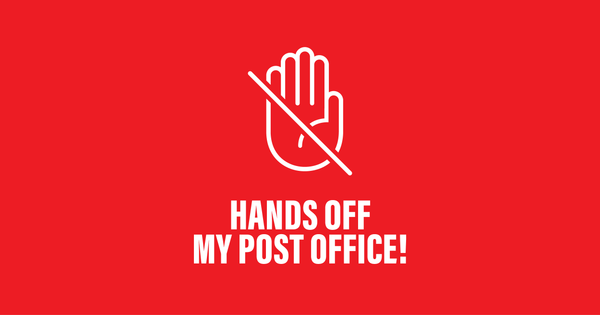Over the past couple of weeks, it seems every media outlet has had something to say about “quiet quitting,” a phenomenon where young workers don’t give their notice, but instead do “just enough work to get by.”
Although it follows a wave of quitting and job changing — referred to as the “Great Resignation” in the United States — there’s actually little evidence that quiet quitting, specifically, has become a widespread practice. It might more accurately be understood as a general desire for less strenuous work lives that has simply been given voice online, and through the endless commentary quiet quitting has provoked during the slow, late-summer news cycle.
On the other hand, researchers have recognized job dissatisfaction and “non-engagement” as “problems” for some time, especially among Gen Z and late millennial workers. Less generously, we might be witnessing some collective exhaustion with what the late David Graeber frankly called “bullshit jobs.”
Perhaps the most insightful dissection of quiet quitting came from Sarah Jones in New York Magazine’s Intelligencer. For Jones, quiet quitting is more like a euphemism for a much deeper malaise that capitalism continually poses but can never solve. The problem, she argues, is “work itself.”
Jones writes: “Whether the subject is hustle culture or ‘quiet quitting,’ the new TikTok phenomenon that launched a thousand editorials, the subtext is always the same. Work is a problem, and we dream of ways to solve it. For a while the trend was to grind harder, or to cobble a living from side gigs. The pandemic shifted perspectives. Workers don’t want to hustle. They want to reclaim their time.”
While it does seem that the pandemic and subsequent tight labour market encouraged workers to reevaluate their jobs and the place of work in their lives more generally, some of the conditions for quiet quitting are likely more dated. For those engaged in “immaterial” forms of labour, distinctions between work and non-work time have become increasingly blurred. Pandemic-induced work-from-home only exacerbated this tension. Many workers suddenly found themselves freed of their commutes, but most didn’t suddenly pocket that newly acquired free time. Rather, more work ate it up.
Changes in the labour market periodically generate anxieties about the meaning and value of work. Historian Aaron Benanav makes a similar point about what he refers to as the “automation discourse.” While there’s scant evidence that automotive technologies pose a threat to employment levels overall — in fact, productivity growth has slowed and business investment is weak — there’s widespread fear about “the future of work.” The reason, according to Benanav, is that work has grown much more precarious over the years. The declining quality of work has given rise to generalized concern about the availability of employment.
What’s particularly interesting about “quiet quitting” is that the internet trend emerged at a moment when the tables have turned on bosses somewhat. Unaccustomed to having to compete for workers, employers and their representatives have been grasping at any excuse to blame “labour shortages” on workers.
In this context, what started as a viral TikTok trend among young workers quickly morphed into the latest backlash against the supposed indolence and lack of work ethic among those under 40.
Mouthpieces for the owning class have been sounding off about the destructive potential of not working excessive hours to increase the profits of employers.
Of course, Canada’s own Kevin O’Leary, of Shark Tank fame, was asked by CNBC to weigh in. According to Mr. Wonderful, “If you’re a quiet quitter, you’re a loser.” Elaborating further, O’Leary warned bosses that if they’re hiring someone who “slams shut their laptop at 5 o’clock, you’re introducing a cancer into your [workplace] culture” and “eventually you’re going to have to do surgery and cut it out.” Quiet quitting, he declared without a hint of remorse or embarrassment, is “worse than COVID.”
Arianna Huffington, on the other hand, cautions that “[q]uiet quitting isn’t just about quitting on a job, it’s a step toward quitting on life.” Huffington’s twist is to suggest that the hot job market provides quiet quitters ample opportunity to pursue their passions and “go above and beyond.” This is the more enlightened response among the managerial class, but it’s equally erroneous.
The illusion here is that individual choice can stand in for collective action. ‘Is your job unfulfilling and burning you out? Quit and follow your dreams!’ That might pan out for some, but it’s an individual solution to a social problem. If we all quit the jobs we hate, who will collect the trash and care for the sick? A momentarily tight labour market is not sufficient to improve job quality and worker satisfaction generally. The extent of the backlash, however, is indicative of how widespread employers’ expectation of unpaid work has become.
Less hyperbolically, discussion of quiet quitting does seem to be leading some “management experts” to encourage employers to rethink their office cultures and expectations and design jobs to be more appealing. We’ll see what the level of uptake on this proves to be. I wouldn’t hold your breath.
In a sense, quiet quitting is an individualized expression of a common union tactic, “work to rule,” wherein union members do only the work specified in their contracts in order to demonstrate to the boss the value of their labour. However, as professor David Doorey suggests, the force of law might not be on the side of quiet quitters here, particularly the unorganized among them. Without unjust dismissal protection, which virtually all non-union employees in Canada lack, the boss can simply turf those who are ‘quietly quitting,’ so long as the proper notice is given.
What then do we make of all the quiet quitting discourse? Although there has been a healthy amount of skepticism concerning the definition and limitations of quiet quitting, there’s also a deeper logic to the phenomenon that few have fully appreciated. Contained within this rallying cry to “do no more than necessary” is the germ of solidarity.
Quiet quitters recognize, if only implicitly, that competition between workers is a corrosive force that undermines the standards of all.
An example will help illustrate the point. Imagine you work in an office, the standard hours of which are usually 9 a.m. to 5 p.m. Your coworker then decides that in order to secure a raise or some other benefit, she’s going to start working an extra half hour per day. Inadvertently, she has introduced a new expectation into your workplace. If others want similar benefits, they too will have to start clocking additional hours. A similar dynamic takes place commonly with vacation time. Some workers will forgo their vacation entitlement in order to appear more committed to the job. However, by doing so, they exert pressure on their coworkers to do the same.
The competition that then becomes necessary to achieve raises or new benefits winds up making work more difficult for everyone. The same logic applies in the reverse direction with wages. If I offer to work for a dollar per hour less than others, I’ll be more likely to get the job, but I also set a new, lower standard for all others competing for similar jobs.
For workers, cooperation is preferable to competition. Quiet quitters seem to intuitively understand this, even if they lack the collective coordination necessary to turn their online revolt into gains in their workplaces. When workers set hard limits on what they will accept as pay, hours or any other condition of work, and then collectively adhere to these stipulations, all are better off than if they had competed with one another to try to achieve their goals, individually.
It’s for this reason that I’m less agnostic or derisive about quiet quitting than some. It might turn out that quiet quitting is a momentary internet fad. But it could also nourish a growing recognition that unionization is the primary way to improve work for the many.
I hope the quiet quitters, like the Starbucks workers at hundreds of stores across North America, connect with one another and start to organize. That’s how work gets better for us all.







